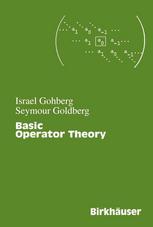

Most ebook files are in PDF format, so you can easily read them using various software such as Foxit Reader or directly on the Google Chrome browser.
Some ebook files are released by publishers in other formats such as .awz, .mobi, .epub, .fb2, etc. You may need to install specific software to read these formats on mobile/PC, such as Calibre.
Please read the tutorial at this link: https://ebookbell.com/faq
We offer FREE conversion to the popular formats you request; however, this may take some time. Therefore, right after payment, please email us, and we will try to provide the service as quickly as possible.
For some exceptional file formats or broken links (if any), please refrain from opening any disputes. Instead, email us first, and we will try to assist within a maximum of 6 hours.
EbookBell Team

5.0
80 reviewsrii application of linear operators on a Hilbert space. We begin with a chapter on the geometry of Hilbert space and then proceed to the spectral theory of compact self adjoint operators; operational calculus is next presented as a nat ural outgrowth of the spectral theory. The second part of the text concentrates on Banach spaces and linear operators acting on these spaces. It includes, for example, the three 'basic principles of linear analysis and the Riesz Fredholm theory of compact operators. Both parts contain plenty of applications. All chapters deal exclusively with linear problems, except for the last chapter which is an introduction to the theory of nonlinear operators. In addition to the standard topics in functional anal ysis, we have presented relatively recent results which appear, for example, in Chapter VII. In general, in writ ing this book, the authors were strongly influenced by re cent developments in operator theory which affected the choice of topics, proofs and exercises. One of the main features of this book is the large number of new exercises chosen to expand the reader's com prehension of the material, and to train him or her in the use of it. In the beginning portion of the book we offer a large selection of computational exercises; later, the proportion of exercises dealing with theoretical questions increases. We have, however, omitted exercises after Chap ters V, VII and XII due to the specialized nature of the subject matter.